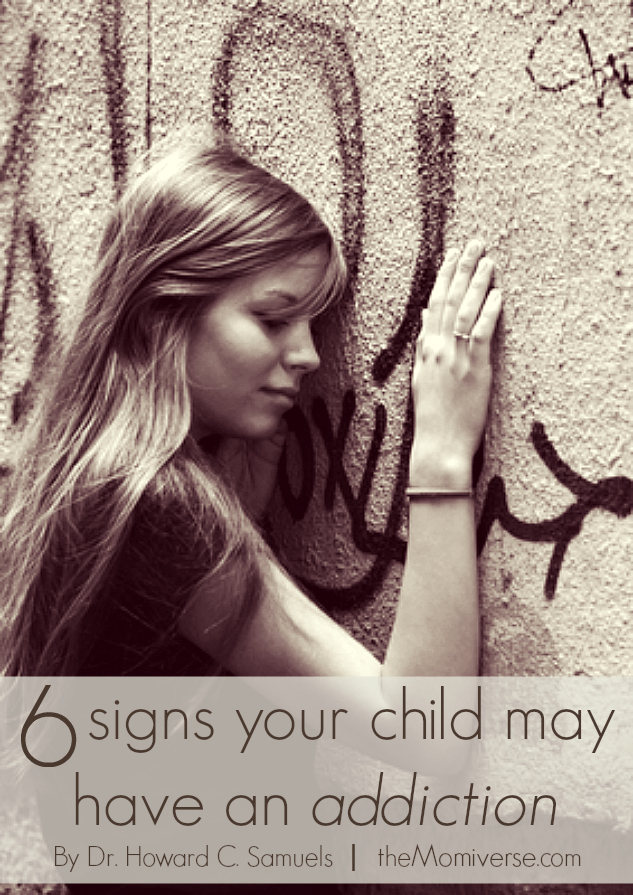One of my favorite photos of myself is a photograph taken on Christmas morning when I was still a child. In it, I am beaming at the camera, smiling from ear to ear, clutching a large stuffed animal (with whom I would become inseparable for at least a year), utterly oblivious as to what the future might bring. Now, I can attest to this because I know – with certain conviction – that the little boy in that photo had no idea he would grow up to become a junkie who would be forced to wander the streets of New York’s infamous Alphabet City, night after night, in search of drugs.
But, I can also tell you – again with certain conviction – that my parents also had no idea what was going to happen to their son. Today in America, if you have a child in high school, your child will be exposed to drugs. That’s a given, not an opinion. Although many parents have no problem navigating the treacherous waters of The Sex Talk (we all have a responsibility to educate our children about sex and what that means), most of us cringe when it comes to talking to our kids – honestly and purposefully – about drugs. In my parents’ defense, forty years ago, a parent would never dream of having that kind of talk with their kids; but today, that talk is mandatory.
You cannot have The Drug and Alcohol Talk unless you are informed and educated. Today’s kids are going to be more street smart and scene savvy unless you, yourself, used drugs or alcohol. If you grew up in the 70s or 80s, chances are you used or experimented with drugs. I understand wholeheartedly the need to keep this part of your history a secret from your kids, but you can also use this to cut through the chase when getting real with your kids about what’s going on in the world. It’s important they know you aren’t stupid.
Your kid might be using marijuana, cocaine, ecstasy, or even bath salts or salvia in any of the head shops that are, unfortunately, strategically located near all of the high schools in every major city in this country. We have to be vigilant if we want to help today’s youth avoid years of drug and alcohol insanity.
Where do you go to get educated? Reading this article is a good start. The next step is to dedicate time to becoming educated. Let’s take a look at signs showing your child or loved one is flirting with danger:
- If your child isolates himself, stays in his room with the door closed, and sleeps at odd hours of the day while being up all night, you can assume that something is amiss.
- If you see your child and mistake him for someone else, chances are there’s something going on. Changes in appearance are common in teenagers as they struggle to find their own identities, but sudden, drastic changes can be a telltale sign he’s adopted a peer group whose values no longer mirror your own. Focus. We’ve all seen drug addicts and low-lifes. We know what they look like, what they sound like, and what they value. Are your children hanging around with these people and defending their choices? Don’t buy into the lie. If it looks like a duck and quacks like a duck, trust me. It’s a duck.
- Is your child barking back more often than usual? If your child is uncharacteristically challenging you or saying things they normally wouldn’t, chances are you may have to abandon the argument you’re having and sit him down to figure out what’s really going on. You know your child. Your child may just be pushing your buttons to keep you from asking the really important questions. He wants to drive you away, so you won’t see what’s going on. Always bear in mind the one real underlying truth: Our children know our vulnerabilities and know what to say to hurt our feelings or distract us from the issue. They are experts at camouflaging what’s really going on.
- Have you heard of the munchies? Different drugs have different culinary signatures. Marijuana smokers usually have a voracious need to eat everything in sight. You will come home and your kitchen will look like five or six people went on a food binge, but you will discover it was merely your child. Why? Is this a usual eating habit for your child? Cocaine or prescription drugs like Adderall inhibit your child’s appetite. Is he losing weight dramatically? Is he skipping meals? There could be any number of reasons for this, but have a sit-down with your child and talk about what you’re noticing.
- When did you become an ATM? It’s normal to give our children cash for things. A trip to the mall or a night out at the movies is one thing, but is your child asking for more and more money? If so, they might be using you to support a drug habit. Ask him what the money is for and use your intuition. Only you know when your child is lying to you. If it doesn’t feel right, call him out on it and don’t let him storm away without giving you an answer you feel good about. A lie of omission is still a lie and it’s our responsibility to turn him down when he asks for money and figure out what he really needs the money for.
- Really look at your child. Study him as he interacts with you. Does he pick athis face and arms unnecessarily? Does he always seem to be scratching? Arehis eyes red or glassy? These can be side effects of drug use, and many times they go unnoticed. Ask him what’s going on and, again, trust your intuition.
I’m not here to frighten you, but the hard truth is no parent wants to be sitting at their child’s funeral wishing they’d had the courage to confront the child about their possible drug use. The world we live in can be a harsh, cruel, and unforgiving place. Drug dealers aren’t going to practice restraint because your child is under-aged or innocent. Like the cigarette companies in the 80s, they are going to target our loved ones and groom new consumers for their products.
It’s going to happen whether we like it or not.
We can unite as a community and do what we can to prevent such a target-rich environment. The heart of this strategy involves the fortification of the Family Unit. Do what is necessary to protect the integrity of your family. If you educate your children in a way that helps them make good decisions, you’ve already won half the battle – which puts you that much closer to winning the war.
© 2013 Howard C. Samuels, Psy.D, author of Alive Again: Recovering from Alcoholism and Drug Addiction
This Week's Articles Read, learn, live
-
 Summertime grilled vegetables
Summertime grilled vegetables
-
 5 Ways to make this summer full of unforgettable family fun
5 Ways to make this summer full of unforgettable family fun
-
 10 Reasons to take a family vacation in Puerto Vallarta
10 Reasons to take a family vacation in Puerto Vallarta
-
 5 Fun tips for spring cleaning with kids
5 Fun tips for spring cleaning with kids
-
 10 chick flicks with New Year’s Eve scenes
10 chick flicks with New Year’s Eve scenes
-
 The day after Christmas: 5 ways to handle the biggest downer of the year
The day after Christmas: 5 ways to handle the biggest downer of the year
